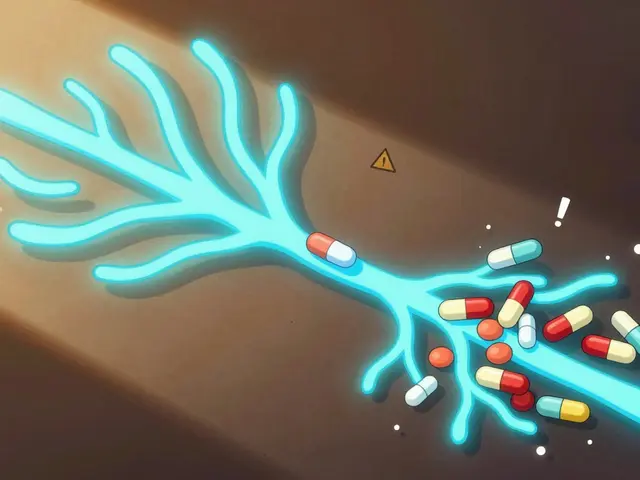Digestion: Simple Ways to Feel Better Every Day
Over 70% of your immune system lives in the gut, so digestion matters more than you think. If you’re tired of bloating, slow digestion, or irregular stools, this page gives real, usable steps you can try today. No fluff—just clear tips, safe supplement options, and when to get medical help.
Practical habits that improve digestion
Start with food. Eat more fiber from fruits, veggies, oats, and beans. Fiber feeds good bacteria and keeps stools regular. Drink water with meals—this helps move food through your system. Slow down when you eat. Chewing well lowers the chance of bloating and gas.
Include fermented foods like yogurt, kefir, sauerkraut, or kimchi for a steady dose of probiotics. If you have trouble with fatty meals, try smaller portions or choose lean proteins and steamed veggies. Limit high-fat, fried foods and artificial sweeteners—both can trigger discomfort for many people.
Move your body. Walking after meals speeds digestion and reduces heartburn. Aim for light activity, not intense workouts right after you eat.
Supplements and treatments that actually help
Digestive enzymes such as pancrelipase can be lifesavers for people with pancreatic insufficiency or chronic pancreatitis. They help break down fats, proteins, and carbs so your body absorbs nutrients. If you think you might need enzymes, talk with your doctor—dosing should match your meals.
Probiotics can help with bloating, occasional diarrhea, and some cases of IBS. Look for products with clear strains and CFU counts. Turmeric and curcumin can reduce gut inflammation for some people—try a food-first approach or a standard supplement dose if needed.
Be cautious with over-the-counter fixes. Antacids and PPIs help heartburn but shouldn’t run long-term without medical advice. Some medications, like misoprostol or certain antibiotics, cause stomach upset—always check side effects and interactions before starting something new.
If you’re ordering supplements or medications online, use reputable sources. KiwiDrug.com covers safe buying tips and checks to avoid shady pharmacies. A prescription-only drug should come from a licensed provider—don’t skip that step.
Small daily changes add up. Track what you eat and how you feel for two weeks—patterns often show themselves. Try one change at a time so you know what helps.
If you notice unexplained weight loss, blood in stool, persistent severe pain, or difficulty swallowing, see a doctor right away. Those are signs that need testing, not home fixes.
Want deeper reading? Check articles on pancrelipase for enzyme therapy, turmeric for gut inflammation, and practical guides on safe online prescriptions at KiwiDrug.com. Use simple steps first, then get professional advice when needed—your gut will thank you.

Heartburn and Gallstones: The Surprising Link You Need to Know About
Many people experience heartburn and wonder if their diet is to blame. But there's another factor that might be at play: gallstones. This article explores how your gallbladder could be contributing to that burning sensation. We'll dive into the connection between heartburn and gallstones, debunk myths, and offer practical tips to help you manage both conditions. Stay informed and discover how tweaking your lifestyle could ease the discomfort.
read more
